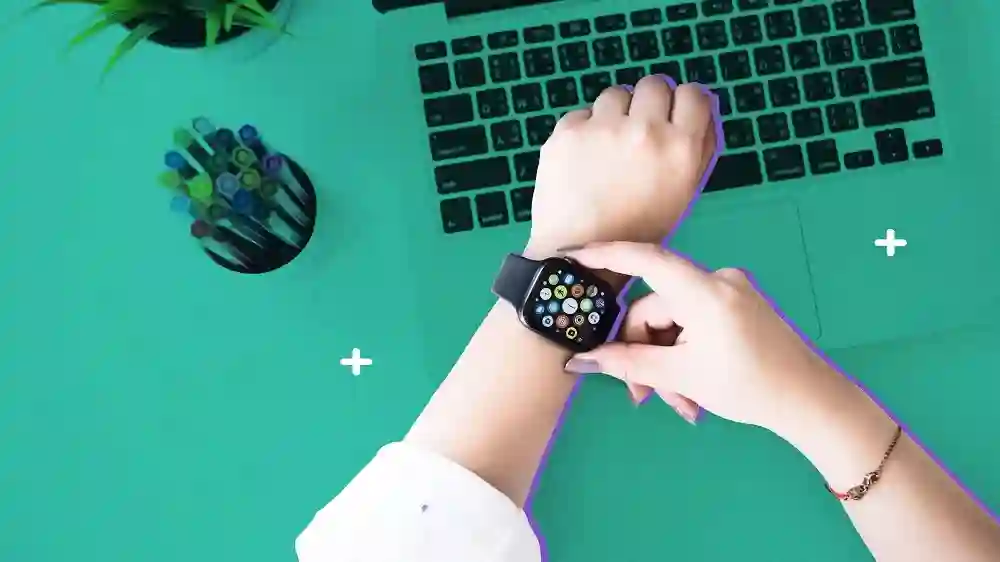Can Tech Help You Live Longer? The Rise of Biohacking

Okay, real talk: we’re all getting older. Some of us faster than others. But here’s the kicker—what if tech could slow that down, or better yet, help us live longer? Yeah, I know, sounds like a futuristic dream, but the rise of biohacking is making it feel a little less “science fiction” and a lot more “real life.” Tech isn’t just making us healthier, it’s possibly making us… immortal? (Okay, that’s probably pushing it, but you get the idea.)
What Is Biohacking, Anyway?
So, biohacking. Big buzzword, right? But it’s not just for Silicon Valley bros with questionable diets. It’s about hacking your own biology to improve your health, brain function, and yes, potentially your lifespan. We’re talking about everything from wearable tech to genetic testing—basically, using modern-day gadgets to bio-hack the body’s aging process.
I’ve tried a bunch of these myself. I mean, I started with a smart watch that tracked my sleep patterns, and guess what? It confirmed what I already knew: I’m a horrible sleeper. But here’s the kicker—after a few adjustments (goodbye, blue lights at midnight) I actually got better rest. Tech. It works. Sometimes.
Anyway, back to biohacking. Here’s how it plays out for most folks:
- Grinders – These are the folks implanting chips in their skin and putting magnets under their fingers. No joke. They’re all about merging with tech.
- Nutritional Hackers – Think custom diets, fasting, and supplements, all tailored to make you feel and perform better.
- Quantified Selfers – Yep, that’s me—track my steps, calories, heart rate. I’m obsessed.
But why does this matter for living longer? Well, it’s because biohacking is one part health, one part tech, and one part longevity. So the real question becomes: Can Tech Help You Live Longer? The Rise of Biohacking. Spoiler: I’m leaning toward yes.
Wearables and How They Can Help You Live Longer
Now, I love a good gadget—can’t deny it. If it beeps, buzzes, or tracks something, I’m all in. But wearables aren’t just about showing off your new smartwatch; they’re helping us monitor key health metrics. I’ve been using one for a year now, and honestly, it’s been a game changer. It tracks everything from my heart rate to how well I’m sleeping (spoiler alert: I need more naps). But here’s the thing: this data? It’s like my little health insurance plan.
With constant tracking, you can catch health issues before they snowball. Imagine knowing something was off with your heart rate or blood oxygen levels before you start feeling bad. Now that’s a real-life hack for longevity.
My buddy Rob swears by his sleep tracker. He’s all, “It’s like a personal health coach, but without the judgment.” He’s probably right. These wearables are probably helping him sleep longer—so we can all pretend we’re living forever.
Genetic Testing: Know Thyself (Literally)
Alright, this one’s a bit wild. When I got my genetic results back, I almost didn’t know what to do with all that info. It’s like suddenly finding out your body is a total snowflake. Did you know your genes affect everything from your caffeine metabolism (yep, I’m a slow metabolizer) to your risk for certain diseases? Freaky, right? But here’s where tech comes in: companies like 23andMe and Ancestry are offering genetic testing that could actually help you live longer by guiding lifestyle choices and health decisions.
You see, biohackers are using this info for more than just bragging rights at parties. They’re making tweaks to their diets, workout routines, and even medications based on what their DNA tells them. It’s like customizing a pair of shoes, but for your entire body. Who knew that tech could hack your biology at the DNA level?
So yeah, Can Tech Help You Live Longer? The Rise of Biohacking? My answer is a solid maybe. For example, if you know your genes say you have a higher risk for heart disease, wouldn’t you want to know sooner? My aunt Mary, after seeing her genetic test results, totally revamped her diet and now takes extra care with her cholesterol. She’s feeling like a new woman.
AI and Its Role in Biohacking
A couple years ago, I would’ve told you AI was just a buzzword—some robots coming for our jobs. But now? AI’s on a mission to save us from ourselves. It’s already being used in the world of health and longevity. Think about it: AI can predict diseases, help develop personalized treatment plans, and even design the perfect workout plan for your body type. Seriously, what can’t it do?
I had this one health app that used AI to tell me my risk of developing hypertension. It was a little unsettling at first (like, do I really need a digital assistant to tell me I’m stressed?), but the app also gave me tips to reduce that risk. I mean, that’s pretty cool, right?
And in terms of longevity, AI is really stepping it up. From analyzing medical histories to suggesting personalized lifestyle changes, AI is quickly becoming a powerful tool in the longevity toolkit. It doesn’t have to be sci-fi anymore—it’s real.
So, Can Tech Help You Live Longer? The Rise of Biohacking? Heck, with AI’s help, I’m convinced I’ll be around for the long haul. But, you know, as long as I remember to update my software.
Cognitive Hacks: Nootropics and Brain Boosters
Let’s talk about nootropics for a second. These are like little miracle pills—no, seriously. They’re supplements designed to improve cognitive function. Think of it like giving your brain a cup of coffee, but without the jitters. I’ve dabbled in nootropics myself. Ever heard of Bacopa Monnieri? It’s supposed to improve memory. Did it work? I don’t know. I forgot after a week. But hey, maybe it’s me, not the supplement.
Seriously though, nootropics are big in the biohacking world. People swear they help with focus, creativity, and even mood. And if your brain’s working at peak performance, you’re probably going to make better decisions about your health, right? So while I’m not about to rely entirely on supplements for my longevity, I do think they can be part of the equation.
Sleep Optimization: Just Snooze Already
Here’s the thing about sleep: It’s not just about catching Z’s. It’s about quality Z’s. I learned that the hard way. I thought I was getting plenty of sleep—until I used a sleep tracker and realized I was waking up every 45 minutes. Whoops. Anyway, turns out, optimizing your sleep is one of the best biohacks for longevity. Tech can help track your sleep patterns, monitor sleep stages, and wake you up at the right time (say goodbye to that groggy, “What year is it?” feeling).
I’m still working on getting the sleep thing right, but it’s been eye-opening. I’m telling you—getting good rest might just be the best thing you can do for your body. Plus, tech helps you track it so you can actually see if you’re improving. It’s like a built-in accountability buddy.
Hormones: More Than Just Puberty
Let’s get weird for a second. Hormones. They’re not just for teenagers. As we age, our hormone levels change, and sometimes not in the fun way. Biohackers are all about optimizing these hormones—think testosterone, estrogen, growth hormones—using therapies like testosterone replacement or peptide injections. I haven’t tried that (yet), but hey, I’m not ruling it out.
The goal is to keep these hormones at peak levels throughout your life. It’s like tuning up a car, but instead, you’re tuning up your body. And when your body’s running at its best, it’s got a better shot at longevity.
Final Thoughts
So, can tech help us live longer? Is biohacking the key to immortality? Well, we’re not quite at the “living forever” stage yet, but the strides being made are pretty damn impressive. From wearables to AI, genetic testing to nootropics, biohacking is helping us optimize health in ways we never thought possible.
As for me? I’m in. I’m using every tech tool I can get my hands on—just as long as I remember to update my apps and not sleep through the notifications. Because hey, if tech can make my 80th birthday party less about arthritis and more about TikTok dances, I’m all in.







